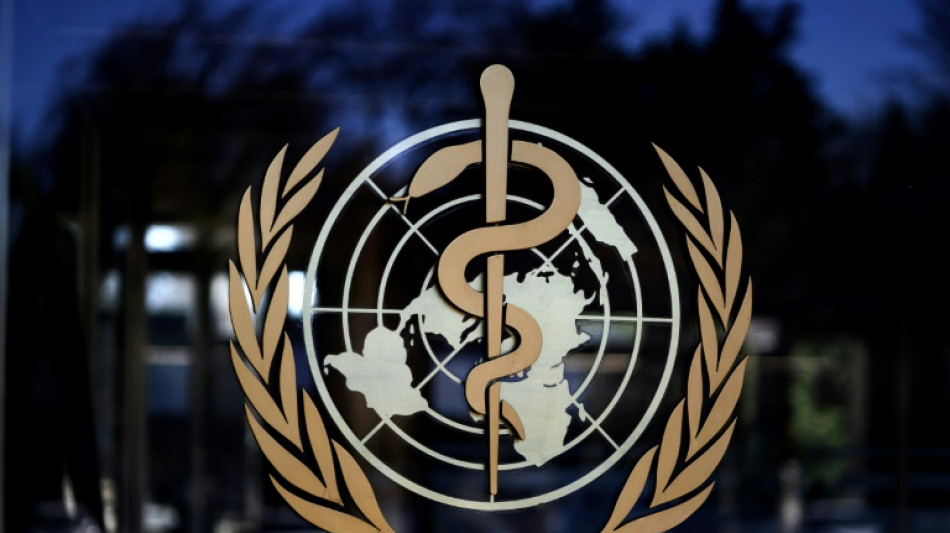
RBGPF
0.1600


The World Health Organization said Tuesday it "regrets" US President Donald Trump's decision -- just hours after taking power -- to withdraw his country from the UN agency, saying it hoped he would reconsider.
Trump on Monday signed an executive order directing the United States to withdraw from the WHO, a body he has repeatedly criticized over its handling of the Covid-19 pandemic.
Speaking at the White House after his inauguration, Trump said the United States was paying far more to the United Nations body than China, adding: "World Health ripped us off."
Washington, comfortably the biggest financial contributor to the Geneva-based organization, provides substantial support that is critical to the WHO's operations.
The UN health agency expressed disappointment Tuesday over Trump's decision.
"WHO plays a crucial role in protecting the health and security of the world's people, including Americans," spokesman Tarik Jasarevic told a press briefing in Geneva.
"We hope the United States will reconsider and we look forward to engaging in constructive dialogue to maintain the partnership between the USA and WHO, for the benefit of the health and well-being of millions of people around the globe."
The American withdrawal could leave global health initiatives short of funding.
This marks the second time Trump has sought to sever ties with the WHO.
During his 2017-2021 first term, the United States issued a notice of intent to withdraw, accusing the organization of being overly influenced by China during the pandemic's early stages.
That move was later reversed under Joe Biden's administration.
Jasarevic stressed it would take one year from formal notification being deposited with the UN for the United States to leave the WHO.
- China promises support -
The European Commission voiced "concerns" at Trump's decision, warning it could undermine the response to future pandemics.
"If we want to be resilient to global health threats, we need to have global cooperation," commission spokeswoman Eva Hrncirova told reporters. "We trust that the US administration will consider all this ahead of the formal withdrawal."
In China, a foreign ministry spokesman said Beijing would continue supporting the UN agency.
"The role of the WHO should only be strengthened, not weakened," Guo Jiakun said.
"China will, as always, support the WHO in fulfilling its responsibilities... and work towards building a shared community of health for humanity."
In his new executive order, Trump directed agencies to "pause the future transfer of any United States Government funds, support, or resources to the WHO" and to "identify credible and transparent United States and international partners to assume necessary activities previously undertaken by the WHO."
The administration also announced plans to review and rescind Biden's 2024 US Global Health Security Strategy -- designed to prevent, detect, and respond to infectious disease threats -- "as soon as practicable."
Several experts expressed dismay at the withdrawal.
"We cannot make WHO more effective by walking away from it," Tom Frieden, a former senior health official under Barack Obama, wrote on X.
"The decision to withdraw weakens America's influence, increases the risk of a deadly pandemic, and makes all of us less safe."
Others warned that by exiting the organization, the United States will lose privileged access to important epidemic surveillance data which could harm the capacity to monitor and prevent health threats from abroad.
"Instead of being the first to receive vaccines, we will be at the back of the line," Lawrence Gostin, professor of public health law at Georgetown University, wrote on X.
"Withdrawal from WHO inflicts a deep wound on US security & our competitive edge in innovation."
The timing comes amid mounting fears over the pandemic potential of the current bird flu outbreak (H5N1), which has infected dozens and claimed one life in the United States.
Meanwhile, WHO member states have been negotiating the world's first treaty on pandemic prevention, preparedness, and response since late 2021 -- negotiations now set to proceed without further US participation.
M.Sugiyama--JT